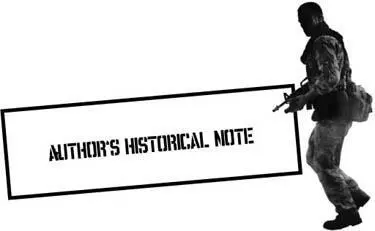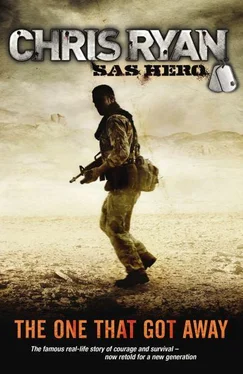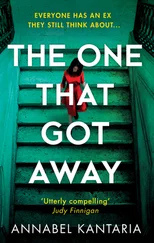Bob held the Iraqis off for thirty minutes, single-handed, before he was shot and killed outright. To have defended himself like that for half an hour, against a force of maybe a dozen Iraqis, was quite a feat. At the end, I feel certain, he must have run out of rounds, but not before taking out a lot of Iraqis. I think he was the bravest man in the patrol, because he saved everyone else’s lives by holding off the enemy. After the war he was awarded a posthumous Military Medal.
With Bob cut off on his own, Mark got shot in the arm and ankle. He and Andy split up. In the end Andy was captured only a couple of kilometres from the border. He must have been somewhere very close to the line of my own route.
Legs and Dinger, on their own now, went towards the Euphrates, but soon ran on to another enemy position. Suddenly they heard a weapon cocked, and something shouted in Iraqi, from only ten metres ahead. They let fly a hail of automatic fire from the 203 and Minimi, and received only half a dozen rounds in return. They retreated to the river bank, but by then enemy were closing on them from the east, firing occasional bursts.
They tried to cross the river, but found themselves on a little island, with the main channel still to cross. Only 200 metres upstream, a big road-bridge spanned the whole Euphrates. They could see several vehicles parked on it, and people shining flashlights down onto the water. They heard gunfire in the distance. After waiting an hour, during which they became very cold, they decided their only option was to swim the second channel. Luckily Legs had found a polystyrene box. They broke this into pieces, which they stuffed into the fronts of their smocks to help them float. Then they waded out and swam.
The water was icy, the current strong; they found it hard to make progress, and had to let go their weapons. Legs, who was going down with hypothermia, began to fail. When he fell back, Dinger got hold of him and towed him on. Reaching the far bank, Dinger dragged him out, but Legs had become incoherent, and couldn’t walk.
Daylight revealed a small tin pump house some fifteen metres from the shore. Dinger pulled Legs into it, but he was so far gone that he kept trying to crawl back into the river. Inside the shelter Dinger lit his remaining hexi-block and brewed up a cup of hot water, hoping it would revive his companion. Legs, however, was making no sense, and instead of drinking the hot water, he hit the mug away. When the sun rose, Dinger dragged him out into it, in the hope that it would warm and dry him, but he was too far gone. His skin remained cold, and his eyes flickered meaninglessly back and forth.
When farmers appeared and started to work in the fields, Dinger pulled Legs back into the hut. Then at mid-morning a man with some children in tow came within ten metres of the pump house. Seeing that he was about to be compromised, Dinger showed himself to the farmer, who locked the two soldiers in and ran off shouting. By that time Legs’ smock was dry, but he was slipping into unconsciousness. Clearly he could not move, so Dinger burst his way through the roof of the hut and made off towards the north, away from the river.
His plan was to pull the enemy away from Legs and give him a chance to recover.
Dinger was spotted almost immediately and followed by a posse of locals, who soon swelled into a crowd. He tried to do a runner, but was caught by the mob, one of whom wanted to cut off one of his ears. The guy was actually holding his ear when Dinger managed to bring out one of his sovereigns. The people fought over that, but then realized he had more, and he started handing them out, which cooled them down.
They walked him into a village, where the people went wild and beat him to the ground before he was handed over to the police. While in the police station, Dinger saw Legs being brought in on a stretcher. He was quickly loaded into an ambulance and driven away, but although Dinger watched closely, he saw no movement, and feared that his companion was already dead.
And that was the end of a brave escape attempt.
By the next night, when I had my own contact and made the Euphrates, the survivors were in jail, being questioned by the Iraqis. They were all brutally beaten for several days, partly in the course of interrogation, partly by their guards, who hit them casually whenever they saw a chance. Even Mark was beaten on his wounded ankle. I was glad that I had been tortured by weather, thirst and hunger rather than by human beings.
In Hereford, together with the Int Officer and a decent map, I worked out the exact distances I had walked.
On the first night, before and after the split, we covered 70 km.
On the second night Stan and I made 40 km, losing Vince in the middle.
On the third I walked another 40 km to reach the Euphrates.
The fourth night was the most frustrating, as I had to cover 40 km in zigzags and boxes to make only 10 km towards the border.
On the fifth night I advanced 30 km and then did another 5 to 6 km during the day, up into the wadis.
The sixth night took me into and out of the nuclear refinery — another 30 km.
The last and most terrible night I did between 40 and 50 km — most of them unnecessarily.
The total came to nearly 300 kilometres, or about 186 miles!
I found that people were beginning to compare my escape with that of SAS legend Jack Sillito, who trekked for more than 100 miles through the Western Desert of North Africa in 1942, having been stranded behind German lines. Without realizing it, I had easily beaten Sillito’s distance. But in fact, the two escapes were made in widely different circumstances. Whereas my main enemy was cold, his had been heat, and he had no river to give him water or guide him. Instead, he had navigated by the sun and the stars, and scrounged liquid from condensation in abandoned jerry cans.
At the end of June I heard the good news that in the Gulf War honours list I had been awarded the Military Medal. It was all very splendid going to London, and an honour to meet the Queen, but I would have much preferred to have received the Military Medal in front of the whole Regiment. I knew that the medal-winners included some of the bravest soldiers in the world, and every one had been fully earned.
* * *
Even now, many years later, I still see incidents from the patrol, and hear the sounds, as clear as day.
I see rounds flying between us during the first contact.
I see Stan walking off down the wadi with the goatherd.
I see the two hooded Arabs waiting for me on top of the mound.
I try to put the images from my mind, but they creep back in.
More and more I realize how lucky I was not to be shot, not to be captured, not to be caught up in the barbed wire on the border. Sometimes I feel that I must have used up all my luck.
All in all, my experience taught me a good deal about myself. Most people, I think, don’t know what they’re capable of until they’re put to the test. Before the Gulf War, if somebody had told me I could walk nearly 300 kilometres through enemy territory in seven nights, with no food and practically no water, with inadequate clothes, no proper sleep and no shelter, I wouldn’t have believed them.
When I had to, I did it. Whether I could do it a second time is another matter.
Back then I was at a peak of physical fitness, and armed with the skills, the endurance, the competitive instinct and the motivation which SAS training had given me. But I really hope I’ll never have to do something like that again.
Once in a lifetime is enough.
Author’s Historical Note

Читать дальше













